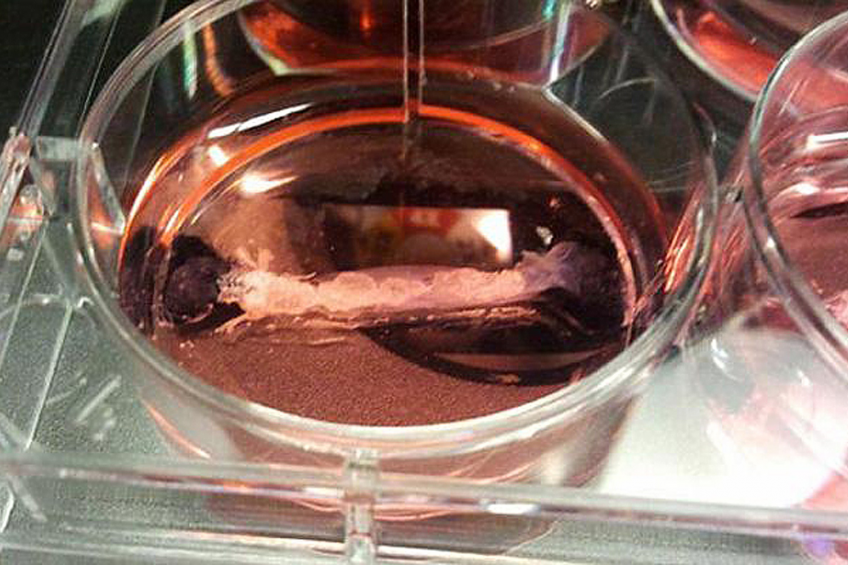Test-tube chicken to be ‘cultured’ in Israeli lab

Tel Aviv University, together with the Modern Agricultural Foundation, has launched a feasibility study on cultured chicken breast production.
The study will determine, among other things, how cultured meat, grown in a lab from animal stem cells, could be manufactured commercially, and examine the costs, technology, and potential problems involved.
Cultured meat production
Prof. Amit Gefen of TAU’s Department of Biomedical Engineering, an expert in tissue engineering, is leading the study on cultured meat production.
Cultured meat is produced by placing stem cells in a growth culture (fetal bovine serum, for example, is extracted from cow uteruses and rich with energy substrates, amino acids, and inorganic salts that support cell metabolism and growth). The cells divide and grow, creating solid pieces of meat.
Sustainable model of food production
Prof. Amit Gefen:” With the growth in populations and projecting to the future, humanity needs to consider more sustainable models of food production, which will provide alternatives to the traditional ways by which we currently produce proteins from animal source for consumption. Tissue Engineering may offer such alternatives, which is what we will be exploring in this research project. We are targeting the development of a tissue-engineered chicken breast, which is a popular choice for a main course in many cultures and countries, to test feasibility of the concept and, in particular, to identify gaps in knowledge and challenges on the route to commercial production.”
One year study
During the course of the project which will take one year, the challenges of production of cultured chicken breast meat will be mapped and potential solutions, along with the implications of their realization (methodology, time and cost), will be examined and described.
In 2013, scientists from the University of Maastricht, the Netherlands unveiled the world’s first lab-grown beef burger, serving it up fried to volunteers in London in what they hope would be the start of a food revolution. The 140g (about 5oz) patty, cost more than €250,000 euros to produce and was made using strands of meat grown from muscle cells taken from a living cow.












